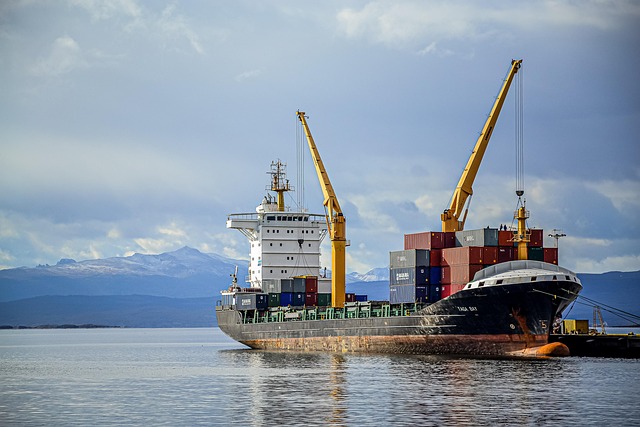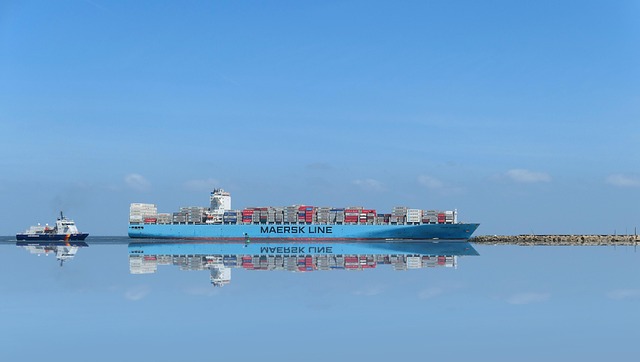Insulated shipping containers, like refrigerated and high cube variants, are essential for safe transportation of perishable goods across industries. Their versatility in sea, road, and rail transport streamlines logistics via leasing services. These containers preserve product integrity, reduce waste, and enhance supply chain efficiency, meeting diverse storage needs. Innovations include integrated cooling units and modular designs, with container rentals further improving accessibility and cost-effectiveness for cold chain logistics.
Insulated shipping containers have revolutionized temperature-controlled delivery, becoming a game-changer in cold chain logistics. These innovative solutions offer a sustainable and efficient way to transport perishable goods worldwide. By understanding how insulated containers work and their numerous benefits, businesses can optimize their supply chains. From fresh produce to pharmaceuticals, these containers ensure product integrity, reducing waste and enhancing safety. This article explores the rise of insulated shipping containers and their diverse applications in maintaining ideal conditions during transit.
- Understanding Insulated Shipping Containers
- Benefits of Temperature-Controlled Delivery
- Applications and Innovations in Cold Chain Logistics
Understanding Insulated Shipping Containers

Insulated shipping containers are designed to maintain a consistent temperature during transit, making them an indispensable tool in the logistics industry. These specialized containers are built with advanced insulation materials and technologies that help regulate internal temperatures, ensuring that sensitive or perishable goods remain safe and sound. By offering controlled environments, they cater to a wide range of industries, from pharmaceuticals and food to chemicals and electronics.
Whether referred to as freight containers, intermodal containers, or cargo containers, these structures are not just limited to sea transport; they can also be stacked and transported by rail or road using specialized equipment. Their versatility is further enhanced by various designs, including refrigerated containers (for temperature-sensitive items), high cube containers (optimizing space for taller loads), and open top containers (ideal for oversized cargo). This modularity ensures that shipping needs of diverse businesses are met efficiently through container leasing or rental services from container depots across the globe.
Benefits of Temperature-Controlled Delivery

In today’s globalized world, ensuring the safe and efficient delivery of perishable goods is more crucial than ever. Temperature-controlled shipping containers play a pivotal role in this process by providing a consistent and controlled environment for sensitive cargo. This is particularly beneficial for industries that rely on the timely delivery of temperature-sensitive products, such as pharmaceuticals, food and beverages, and agricultural produce. By maintaining optimal conditions during transit, these containers prevent spoilage, ensure product quality, and extend shelf life, thereby reducing waste and improving customer satisfaction.
Moreover, leveraging temperature-controlled shipping containers offers logistical advantages, especially in the realm of intermodal transport. Their versatility allows for seamless container leasing or rental services, enabling efficient container transport by sea, road, or rail. This modularity streamlines operations at container depots and ports, contributing to faster turnaround times and cost savings. Ultimately, temperature-controlled delivery enhances supply chain resilience, enabling businesses to meet demand with confidence, even for perishable goods requiring specific storage containers like refrigerated, flat rack, open top, or high cube options.
Applications and Innovations in Cold Chain Logistics

The applications of cold chain logistics span various industries, from pharmaceuticals and healthcare to food and beverages. Insulated shipping containers, also known as refrigerated or temperature-controlled freight containers, play a pivotal role in ensuring the integrity and safety of perishable goods during transit. These specialized containers maintain optimal conditions by utilizing advanced insulation materials, climate control systems, and monitoring technologies, thus preserving the quality and freshness of content, be it vaccines, dairy products, or fresh produce.
Innovations in this field have led to the development of various types of refrigerated containers, such as ISO containers with built-in cooling units, high-cube containers offering increased storage capacity, and modular containers designed for easy integration into existing logistics networks. Additionally, container leasing and rental services have made temperature-controlled shipping more accessible and cost-effective, enabling businesses to adapt their supply chains to meet the stringent requirements of cold chain logistics.
Insulated shipping containers have revolutionized temperature-controlled delivery, offering a versatile solution for various industries. By understanding their benefits and applications in cold chain logistics, businesses can ensure product integrity and safety during transit. These innovative containers are a game-changer for perishable goods, enabling efficient and sustainable global trade.
